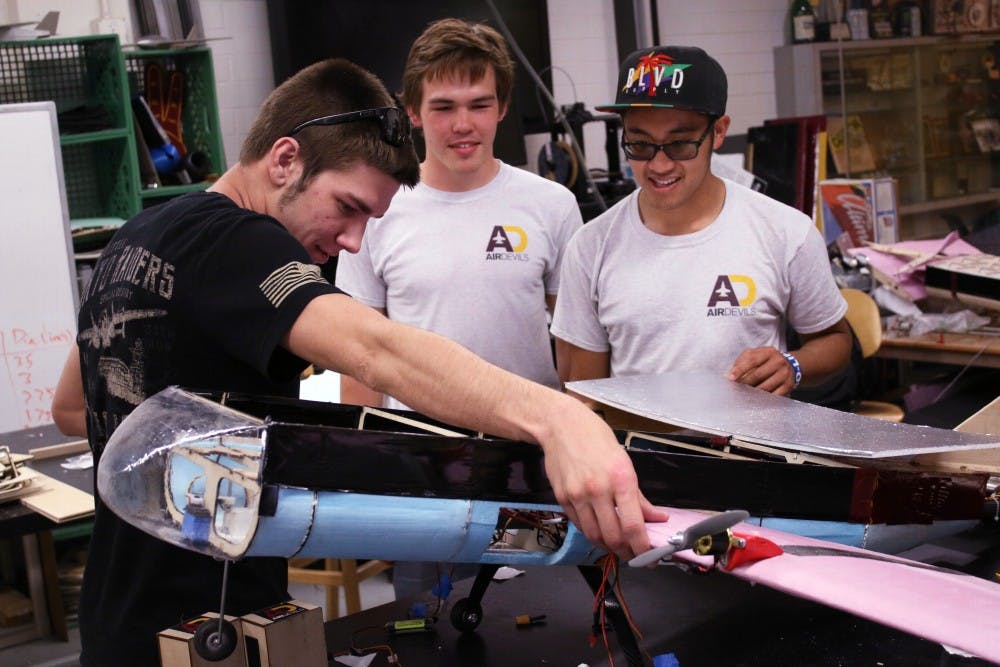Members of the ASU Air Devils club spend $1,000 on each of their remote control planes, which can be as large as 7 feet across. But they often have to spend several extra thousand dollars when the planes hit cacti and other obstacles.
Air Devils is an aerospace engineering club that develops and builds remote-controlled aircrafts.
For Philip Thomas, an aerospace engineering junior and the club's president, the struggle is part of the appeal.
"That model crashes into a cactus, and then you build the next version and that crashes into a cactus," he said. "Having all these setbacks (and then) at the very end (it) flies perfectly at full speed, it's incredibly satisfying."
The club spends their time making these planes for the annual American Institute of Aeronautics and Astronautics competition.
The rules of the design, build and fly competition change every year, which makes each year's aircrafts very different Thomas said.
He said he joined the club, which now has about 20 members, because he had never worked on real airplanes before, and he wanted to try something new.
Each aircraft is about six fix long with a wingspan of seven feet, however, it can vary to as small as three feet by four feet, Thomas said.
He said his favorite part of running the club is seeing it all come together at the end of the season.
"It's been really hectic for the whole season, but now we have our final design built and it flew really well," he said. "To see it all come together and have so few issues has been great."
Thomas said the club has done fairly well in its competitions, placing in the upper quartile or upper third of over 100 universities worldwide. They placed 14th overall in 2016, which has been the club's best finish so far.
"The people who are really dedicated to this process end up essentially living in our workshop," he said. "You end up becoming really close friends with the guys you work with. It creates a strong sense of community."
Walter Bonar, a junior studying aerospace engineering and treasurer of the club, joined when he saw a table at the engineering Passport to ASU event his freshman year.
As treasurer, Bonar buys all the supplies and equipment needed to make the remote-controlled planes and is also in charge of the structural analysis of the aircraft during the building.
Bonar said the average aircraft costs about $1,000, but including prototyping and reserve aircrafts, the club spent $6,000 this year designing and building the plane.
After all the time and money spent on the craft, seeing it finally take off is a very gratifying feeling, Bonar said.
"On takeoff, everyone is holding their breath," he said. "After it makes that first lap everyone is cheering. Seeing it all come together is a really great feeling."
Matthew Bajamundi, a junior studying aerospace engineering, joined the club his freshman year because he has always been interested in aircraft development.
Bajamundi said the club has given him great real-world experience for what he wants to do when he graduates from ASU.
Bajamundi said this year, the club has been different for him than others.
After spending the last two years with other members of the club, including Thomas, they were finally able to take on the project of building the plane without help from older students, which Bajamundi said he was very proud of.
"We spend so much time on this aircraft, and we really just hope it can fly," he said. "To see the fruits of our labor get up there and land at the end is such a great experience. I can't really explain it."
Reach the reporter at ajhowar6@asu.edu and follow @andrew_howard4 on Twitter.
Like The State Press on Facebook and follow @statepress on Twitter.




